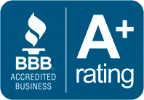NYC’s Climate Goals Are Transforming Home Heating
New York City has set aggressive climate goals, aiming to drastically cut carbon emissions in the building sector. For example, the city’s Climate Mobilization Act includes NYC local law compliance such as emissions limits for large buildings (Local Law 97) which start taking effect this decade. These policies essentially require buildings to become more energy-efficient and use cleaner energy sources for heating, hot water, and power. In practical terms, that means less reliance on fossil fuels like traditional heating fuel and natural gas over time. At the state level, New York’s Climate Leadership and Community Protection Act (CLCPA) calls for net-zero emissions by mid-century, and plans are underway to transition heating systems to sustainable energy. We’re already seeing steps like incentives for heat pumps, stricter energy codes for new construction, and proposals to eventually phase out fossil-fuel heating equipment. The message is clear: to meet clean energy targets, NYC’s homes will need to embrace new heating technologies and fuels that produce fewer emissions.
Cleaner Heating Oil: Ultra-Low Sulfur and Bioheat Blends
One significant change in home heating has been the improvement of heating oil itself. Gone are the days of sooty, high-sulfur fuel oil. Today, New York mandates low-sulfur heating oil – in fact, all No. 2 heating oil sold in NYC is ultra-low sulfur (15 parts per million sulfur or less), dramatically reducing air pollution like soot and sulfur dioxide. Additionally, the city and state have introduced Bioheat fuel in NYC, which is a blend of traditional heating oil with renewable biodiesel made from plant oils or recycled cooking oils. As of recent years, heating oil in NYC contains at least 5% biodiesel (B5 Bioheat), and this blend requirement is increasing. New York State law will ramp that up to B10 (10% biodiesel) in the near future, with plans for B20 (20% biodiesel) by 2030. Using Bioheat blends means that every gallon of oil burned releases fewer fossil fuel emissions because a portion is from renewable sources. For NYC homeowners, the good news is that Bioheat requires no changes to your furnace or boiler – it’s fully compatible with existing oil heating systems. You might not even realize your delivered fuel is a blend, aside from possibly noticing a cleaner furnace over time. These cleaner fuel standards are part of the shift toward sustainability: your oil furnace is now burning a fuel that’s not only ultra-low sulfur but also partially renewable. It’s a simple yet effective way that clean energy NYC initiatives are greening home heating without homeowners having to take direct action.
Phasing Out Heavy Oil Fuels (No. 6 and No. 4)
Another change driven by clean energy policy is the phase-out of heavier heating oils. In past decades, some NYC buildings (especially larger or older ones) used No. 6 or No. 4 fuel oil. These fuels are more polluting and less efficient. The city already eliminated No. 6 oil by 2015, and now No. 4 oil is on the chopping block. In fact, updated regulations have set a deadline for phasing out No. 4 heating oil – by 2027, buildings in NYC will no longer be allowed to burn it. This No. 4 oil phase-out (previously expected by 2030 but accelerated to 2027) is pushing any remaining oil-burning buildings to switch to cleaner alternatives, namely No. 2 oil (Bioheat) or convert to gas or other systems. For the average homeowner, this primarily affects co-op or condo buildings and some commercial facilities – it means if your building was using a heavier grade oil, your fuel will be upgraded to #2/Bioheat or you’ll convert your boiler accordingly. The reason for this policy is clear: No. 4 and 6 oils produced high levels of soot, sulfur, and greenhouse gases. By eliminating their use, the city achieves cleaner air and lower emissions. This is one of the ways clean energy standards are directly changing heating: the fuel options themselves are being restricted to cleaner types. So, NYC is effectively saying: we only want the cleanest heating oil (and other heating fuels) to be used going forward. Homeowners should be aware of these mandates, especially if you’re in an older building – if you haven’t already been notified of a fuel conversion, it’s likely coming very soon.
Moving Toward Renewable and Electric Heating
Beyond cleaning up fossil fuels, New York’s long-term strategy is to transition buildings toward eco-friendly heating technologies. This includes greater use of electric heating (powered by an increasingly green electric grid) and other renewable options. A key technology here is the heat pump – devices that efficiently extract heat from the air or ground. Heat pumps, including ductless mini-split systems and larger centralized units, are being promoted as alternatives to oil or gas furnaces. They run on electricity and can both heat and cool a home with high efficiency. NYC and New York State have incentive programs to help homeowners install heat pumps, recognizing that when the electric supply is generated from wind, solar, and hydro, electric heating dramatically cuts carbon emissions. We’re also seeing building codes updated: for instance, NYC passed rules that will prohibit new buildings from installing gas heating in the coming years, effectively requiring electric heating in new construction. On the renewable fuels side, there is ongoing research and trials for renewable natural gas or even hydrogen blending for heating, though those are nascent. The current practical focus is on electrification and efficiency. For homeowners, this means that over the next decade or two, you might consider replacing an aging oil furnace with a heat pump system or a high-efficiency electric boiler. Some early adopters are already enjoying lower operating costs using heat pumps, especially when paired with solar panels or when taking advantage of off-peak electric rates. While oil and gas heating aren’t vanishing overnight, the clear trend is that clean energy standards are guiding everyone toward cleaner options. In a nutshell, the future of home heating in NYC is likely a mix of Bioheat fuel (for those who stick with oil a while longer), and a growing number of all-electric homes leveraging heat pump technology for truly renewable home heating.
How Property Owners Can Adapt to the New Standards, Like Local Law 97
If all these changes sound a bit overwhelming, don’t worry – there are concrete steps you can take to align your home with NYC’s clean energy direction. First, stay informed about your current heating fuel and system. If you heat with oil, you’re probably already using a cleaner Bioheat blend, so continue to ensure you buy from a reputable supplier who delivers fuel meeting the latest standards. Schedule a HVAC system tuned-up for peak efficiency, as an efficient furnace emits less and will easily meet any performance standards. If your building needs to upgrade from No. 4 oil, engage with your fuel provider or HVAC contractor early to plan a conversion to No. 2 oil or another solution; they can guide you on permits and equipment modifications.
Secondly, consider building energy efficiency upgrades – adding insulation, sealing drafts, and upgrading to a smart thermostat will reduce your overall energy consumption immediately, making it easier to meet any future emission targets (and saving you money). For those thinking long-term, explore heat pumps or hybrid systems. You might start by supplementing oil heat with a heat pump in milder weather, a strategy some homeowners use to cut oil usage significantly. Financial incentives from NYSERDA and Con Edison can make these upgrades more affordable.
Also, keep an eye out for any new programs NYC offers – for example, there have been pilot programs to help building owners comply with Local Law 97 through efficiency retrofits. By proactively improving your home’s energy profile, you’ll not only comply with evolving standards but actually get ahead of the curve. Remember, the goal of these clean energy policies is to create healthier, more sustainable homes. Adapting to them not only keeps you in compliance – it also means your household will benefit from newer technology, potential cost savings on fuel, and the satisfaction of contributing to a greener city. New York’s heating landscape is changing, but with the right planning, homeowners can comfortably ride this wave of innovation into a cleaner future.
Contact us to see how we can help you today!






NYC Local Law 152: New Rules, 2026 Deadlines & How to Stay Compliant
Local Law 152 – NYC’s gas piping inspection law – just got some important upgrades. If you own or manage a building in New York City, recent amendments from the Department of Buildings (DOB) will change how you handle your gas compliance in 2026 and beyond.
What First-Time NYC Homebuyers Miss When Buying an Oil-Heated Property
Buying your first home in New York City is exciting—but if that home is heated with oil, there are a few extra details worth slowing down for. Many first-time buyers are coming from apartments or gas-heated homes, so oil heat can feel unfamiliar during an already overwhelming process.